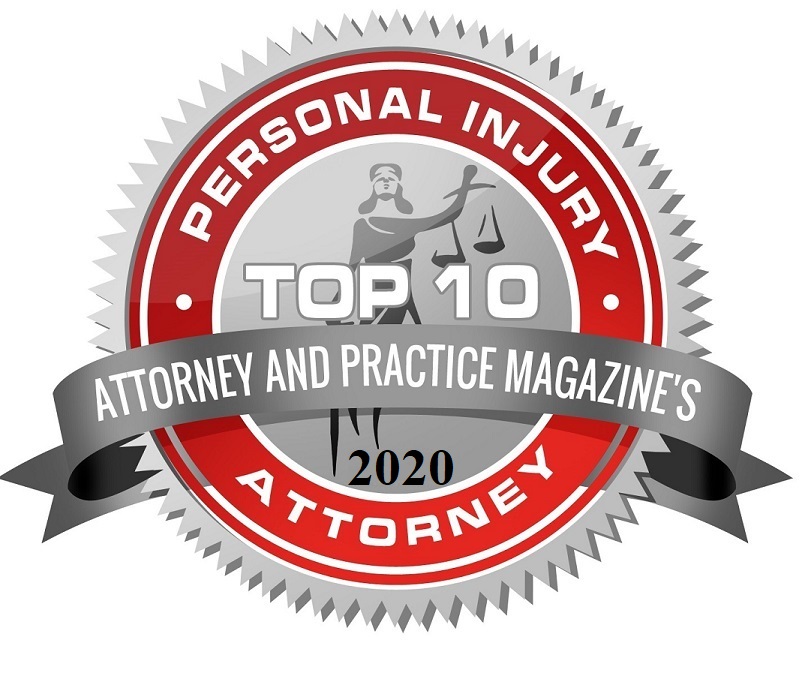Experiencing a car accident can be a traumatic event, often resulting in various physical injuries. Among these, whiplash is a common but frequently misunderstood injury. Whiplash occurs when the neck is suddenly and forcefully jerked back and forth, causing damage to the soft tissues in the neck — an injury particularly prevalent in rear-end collisions. If you find yourself suffering from whiplash after a car accident in Florida, it is crucial to take specific steps to ensure your health and protect your legal rights. This comprehensive guide will walk you through the necessary actions you should take following a car accident-induced whiplash.






Immediate Steps to Take at the Scene
In the immediate aftermath of a car accident, your priority should be to ensure the safety and well-being of everyone involved. If you suspect you have sustained a whiplash injury, it is essential to remain calm and collected. First, check yourself and others for any visible injuries. Even if you do not feel pain right away, it is important to stay as still as possible and avoid any sudden movements that could exacerbate your condition.
Once you have assessed the situation, call 911 to report the accident. Inform the dispatcher of any injuries and request medical assistance. While waiting for emergency services to arrive, gather as much information as possible. This includes the names, contact details, and insurance information of all parties involved in the accident. Additionally, take note of the make, model, and license plate numbers of the vehicles. Documenting the scene with photographs can also be invaluable later on.
When the police arrive, provide them with an accurate account of the incident. Be honest about your symptoms, even if they seem minor at the time. A police report will be an essential piece of evidence if you decide to pursue a personal injury claim.
Seeking Medical Attention
Regardless of the severity of your symptoms, it is crucial to seek medical attention as soon as possible. Whiplash symptoms may not manifest immediately, and delaying treatment can worsen your condition. Visit a healthcare professional who is experienced in diagnosing and treating car accident injuries. They will perform a thorough examination, which may include imaging tests such as X-rays, MRIs, or CT scans to assess the extent of your injury.
Your healthcare provider will likely recommend a treatment plan tailored to your specific needs. This may include pain management strategies, physical therapy, and exercises to improve your range of motion and strength. Follow your doctor’s instructions meticulously and attend all follow-up appointments. Keeping detailed records of your medical visits, treatments, and expenses is crucial for any potential legal action.
Notifying Your Insurance Company
After seeking medical attention, you should promptly notify your insurance company about the accident. Provide them with all relevant information, including the police report, medical records, and any documentation you have gathered at the scene. Be truthful and accurate in your statements, but avoid admitting fault or downplaying your injuries. Insurance adjusters may attempt to minimize your claim, so it is important to stick to the facts.
Your insurance policy may require you to file a claim within a specific timeframe, so do not delay this step. Cooperate fully with your insurance company’s investigation, but be cautious about signing any documents or accepting a settlement offer without consulting a legal professional.
Consulting a Personal Injury Attorney
Navigating the legal complexities of a personal injury claim can be daunting, especially when you are dealing with the physical and emotional aftermath of a car accident. Consulting a personal injury attorney who is well-versed in Florida’s laws can significantly improve your chances of receiving fair compensation for your injuries. An experienced attorney will evaluate your case, help you understand your rights, and guide you through the legal process.
Your attorney will begin by conducting a thorough investigation of the accident, gathering evidence such as police reports, medical records, witness statements, and any available video footage. They will also communicate with insurance companies on your behalf, ensuring that your rights are protected and that you receive the compensation you deserve.
In Florida, the statute of limitations for filing a personal injury claim is generally two years from the date of the accident. However, it is advisable to seek legal counsel as soon as possible to avoid any potential complications. Your attorney will help you determine the appropriate course of action, whether it involves negotiating a settlement or pursuing a lawsuit.
Understanding Florida’s No-Fault Insurance System
Florida operates under a no-fault insurance system, which means that your own insurance company will cover your medical expenses and lost wages, regardless of who was at fault for the accident. This is done through Personal Injury Protection (PIP) coverage, which is mandatory for all drivers in Florida. PIP benefits can cover up to $10,000 in medical expenses and lost wages, but they may not be sufficient to cover all your damages, especially in cases of severe whiplash.
If your medical expenses exceed your PIP coverage or if you have suffered a significant injury that meets certain criteria, you may be able to file a personal injury lawsuit against the at-fault driver. Significant injuries include those that result in permanent disability, significant disfigurement, or death. Your attorney will help you determine if your case meets the threshold for filing a lawsuit and will guide you through the process.
Choosing The Right Personal Injury Attorney Personal Injury Settlement TimelineRelated Videos
Building a Strong Personal Injury Case
Building a strong personal injury case requires meticulous documentation and a strategic approach. Start by keeping a detailed record of all your medical treatments, including dates, procedures, and costs. Document any changes in your physical condition, pain levels, and daily activities. Keeping a pain journal can be particularly useful in demonstrating the impact of your injury on your quality of life.
In addition to medical records, gather any other evidence that can support your claim. This includes photographs of the accident scene, damage to your vehicle, and any visible injuries. Collect witness statements and contact information, as well as any correspondence with insurance companies. Your attorney will use this evidence to build a compelling case that demonstrates the extent of your injuries and the impact on your life.
Your attorney may also work with medical professionals and accident reconstruction specialists to provide testimony. These specialists can help establish the cause of your whiplash injury, the severity of your condition, and the long-term effects on your health. Their testimony can be crucial in proving your case and securing the compensation you deserve.
Case Results
Negotiating with Insurance Companies
Dealing with insurance companies can be challenging, as their primary goal is to minimize their payouts. Your attorney will handle all communications with the insurance companies, ensuring that your interests are protected. They will negotiate on your behalf to secure a fair settlement that covers your medical expenses, lost wages, pain and suffering, and any other damages you have incurred.
It is important to be patient during this process, as negotiations can take time. Do not accept the first settlement offer without consulting your attorney. Insurance companies often start with low offers, hoping that you will settle quickly. Your attorney will advise you on whether to accept an offer or continue negotiating for a better outcome.
Preparing for Trial
If a fair settlement cannot be reached through negotiations, your attorney may advise you to proceed to trial. While most personal injury cases are settled out of court, taking your case to trial may be necessary to achieve the compensation you deserve. Your attorney will prepare your case meticulously, gathering all necessary evidence and preparing witnesses to testify on your behalf.
During the trial, your attorney will present your case to a judge or jury, explaining how the accident occurred, the extent of your injuries, and the impact on your life. They will use testimony, medical records, and other evidence to support your claims. The goal is to convince the court that you are entitled to compensation for your injuries and damages.
Getting You the Compensation You Deserve
If you have suffered from whiplash after a car accident in Florida, Serrano Law is here to help. Our experienced personal injury attorneys are dedicated to fighting for your rights and securing the compensation you deserve. We understand the physical, emotional, and financial toll that a car accident can take on your life, and we are committed to providing the compassionate and effective legal representation you need.
Contact Serrano Law today for a free consultation. Let us guide you through the legal process and help you get back on the road to recovery. Your well-being is our top priority, and we will work tirelessly to ensure that you receive the justice and compensation you deserve.



